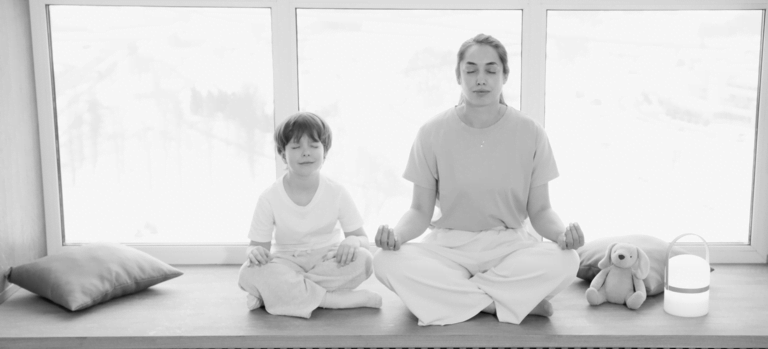Solitude can be a powerful tool for gaining clarity, insight and peace of mind. But it can also be the source of great pain and suffering. For many people, melancholic solitude is a state they find themselves in often and one that is difficult to escape from without proper guidance.
In this blog post, we will explore what melancholic solitude really means, its causes and how to cope with it more effectively. By understanding this state better, we hope to provide readers with tools for transforming their experience into something positive that can help them grow as individuals.
What is Melancholic Solitude?
Melancholic solitude refers to the experience of being alone or spending time in solitude while experiencing feelings of melancholy. In this state, individuals may be immersed in deep emotions, such as sadness, nostalgia, or wistfulness, and they find solace in their own company despite the somber or melancholic nature of their feelings. Rather than seeking to escape these emotions, they may choose to explore and understand them through introspection.
However, it is important to note that this type of solitude should not be confused with withdrawal or isolation as those are often symptoms of depression and other mental health issues. It is a deliberate and mindful practice that one engages in to gain greater understanding of their emotions and self. Furthermore, it is important to ensure that one does not become stuck in this type of state or allow themselves to be overwhelmed by overwhelming feelings for too long. Taking regular breaks from this practice is essential for balance and wellbeing.
What’s the Deal with Romanticizing Your Melancholic Solitude?
Let’s talk about why it’s important to avoid romanticizing melancholic solitude. It might seem appealing at times, but there are some important reasons to be cautious about this tendency.
First of all, it’s essential to recognize that romanticizing melancholic solitude can sometimes mask underlying issues. Sure, spending some alone time can be incredibly therapeutic and can help you reflect and recharge. However, when you start to idealize the idea of being sad and alone, it can prevent you from addressing any deeper emotional or mental health concerns. Loneliness and sadness are real, valid feelings, but they shouldn’t be glorified.
Another reason to be wary of romanticizing melancholic solitude is that it can lead to isolation. When you make solitude seem like the ultimate goal, you might start pushing people away, thinking that being alone is the only way to truly understand yourself. But human connection and relationships are also vital for personal growth and happiness. It’s crucial to strike a balance between solitude and social interaction.
Ways to Embrace Melancholic Solitude
Embracing melancholic solitude, without romanticizing it, requires intention and practice. Here are some ways to make the most of this introspective and contemplative state:
1. Create a Sacred Space
Creating a sacred space for melancholic solitude, it’s crucial to understand that this is not about romanticizing sadness, but embracing it as a part of life’s rich tapestry. This process begins with choosing a place that is comfortable and free from distractions. This could be a room in your house, a quiet spot in a garden, or even a secluded corner in a local park.
Fill this space with items that bring you a sense of peace and calm. It could be a soft blanket, a comforting cup of tea, a soothing piece of music, or a cherished book. Remember, the goal is not to escape from your feelings of melancholy but to create a safe and nurturing environment where you can explore these feelings and perhaps, understand them better.
Just as we prepare a physical space, it’s also important to create a mental space. This could mean setting aside a specific time each day for solitude, practicing mindfulness, or simply allowing yourself to be alone with your thoughts. Remember, there’s no ‘right’ way to experience melancholic solitude. What matters is that it is a conscious, respectful, and explorative embrace of your emotional landscape.
2. Disconnect from Technology
During your moments of solitude, disconnect from electronic devices and social media. Allow yourself to be fully present in the experience without distractions.
3. Accept and Feel Your Emotions
Melancholic solitude, while often depicted in movies and literature as a romantic state, can sometimes veil profound sadness and loneliness. It’s crucial to recognize that feeling melancholic does not equate to a refined state of artistic sensitivity; instead, it’s a human emotion that needs understanding and acceptance.
Accepting and feeling your emotions is not about glamorizing the melancholy but about acknowledging its existence within your emotional spectrum. This acceptance is the first step towards managing these feelings. It’s okay to feel down sometimes — it’s a normal part of life. But remember, it’s essential to seek help when melancholic solitude becomes overwhelming or persistent, as it can signify a deeper emotional issue.
4. Explore Creative Outlets
Melancholic solitude, a state often characterized by self-reflection and introspection, can provide a unique opportunity to explore creative outlets. This isn’t about romanticizing the concept, but rather acknowledging its potential for artistic exploration.
Many individuals find that in moments of solitude, they are able to tap into their thoughts, emotions, and experiences, expressing them through various forms of art like painting, writing, or music. It’s important to note, however, that while creativity can flourish in such circumstances, it’s also essential to maintain balance and ensure that solitude does not lead to feelings of isolation or disconnection.
Engaging in creative outlets should serve as a mode of expression and understanding, not as a substitute for human connection.
5. Read Thought-Provoking Material
Reading thought-provoking material can serve as a helpful mechanism to navigate through periods of melancholic solitude. Books that delve into profound aspects of human existence can offer a sense of companionship, resonating with our feelings and experiences.
When we are alone and our thoughts are pervaded by melancholy, meaningful literature can provide a reflective mirror, allowing us to better understand and process our emotions. Furthermore, it can stimulate introspection, encouraging a healthier perspective towards solitude – one that views it as an opportunity for personal growth and self-discovery, rather than a state of loneliness.
6. Take Long Walks or Nature Strolls
During periods of melancholic solitude, taking long walks or nature strolls can serve as a constructive coping mechanism. It’s a way to clear the mind, reconnect with oneself, and gain some perspective.
But it’s important to remember that this is not a cure-all, nor should it be romanticized as a panacea for deep-seated emotional troubles. It’s an avenue for quiet reflection, an opportunity to momentarily escape from the intricacies of our everyday lives.
It’s not about finding the answers to all our problems amidst the rustling leaves or under the vast expanse of the sky, rather it’s about learning to sit with our feelings, to acknowledge them without judgement, and to understand that it’s okay to not feel okay sometimes.
7. Embrace Silence
Embracing the silence during periods of melancholic solitude can be a potent tool for self-reflection and growth. It’s a time when the noise of society recedes, allowing one to tune into their inner world. However, it’s important not to romanticize such experiences. While solitude can foster introspection and spark creativity, it can also invite feelings of loneliness and desolation.
Understanding this duality is key. The quietude can reveal our strengths and our vulnerabilities, while the melancholy can mirror our joys as much as our sorrows. It’s a delicate balance and a journey of self-discovery that should be acknowledged without any semblance of glorification.
8. Avoid Overthinking
During times of melancholic solitude, it’s easy to fall into the trap of overthinking. This can result in a downward spiral of negative thoughts and emotions that might worsen the feelings of loneliness.
One effective strategy to combat overthinking is mindfulness. It’s the practice of focusing your attention on the present moment, accepting it without judgment. This can help you break free from the cycle of negative thoughts.
Engaging in activities that you enjoy, such as reading a book, listening to music, or taking a walk in nature, can also serve as effective distractions. Remember, it’s okay to be alone and feel melancholic from time to time. It is part of the human experience, and it can offer a unique opportunity for self-discovery and personal growth.
9. Be Patient with Yourself
During times of melancholic solitude, it’s important to practice patience with yourself. This is not a period to romanticize, but rather, it’s a time of introspection and self-discovery. It is normal to feel sorrow, to grieve, or to feel lost. Yet, it’s vital to remember that these moments are not your whole story, but fragments of a larger narrative.
Being patient allows you to experience these feelings without judgement or haste, and provides the space necessary for healing and growth. Lean into the discomfort, acknowledge these moments as they come, and let them flow away in their own time. Remember, melancholic solitude is not a permanent state, but a poignant chapter in your life’s book.
Remember that this is a personal journey, and there is no one-size-fits-all approach. Find what works best for you and make it a meaningful and enriching part of your life.
Misconceptions About Melancholic Solitude
Misconceptions about melancholic solitude are common due to various societal and cultural factors. These misconceptions can lead to misunderstandings and judgments about individuals who embrace and appreciate solitude in a melancholic context. Some of the misconceptions include:
1. Loneliness
One of the primary misconceptions is equating melancholic solitude with loneliness. While both involve being alone, loneliness is characterized by a sense of isolation and a desire for connection, whereas melancholic solitude is a voluntary choice and may be accompanied by a sense of comfort and peace in one’s own company.
2. Depression
Melancholic solitude is often mistaken for depression or sadness. While individuals may experience melancholic emotions during solitary moments, it is not a state of constant sadness or clinical depression. It is a normal range of emotions experienced in solitude, and it doesn’t necessarily indicate a mental health issue.
3. Antisocial behavior
Some people may perceive those who prefer solitude as being antisocial or unfriendly. However, seeking melancholic solitude doesn’t necessarily indicate a dislike of social interactions. It can be a way for individuals to recharge, process emotions, and foster personal growth.
4. Lack of productivity
There’s a misconception that being alone in a melancholic state may lead to unproductivity or laziness. On the contrary, many individuals find solitude conducive to creativity and introspection, leading to increased productivity in their creative or intellectual pursuits.
5. Avoidance of problems
People may assume that those who experiencing melancholic solitude are avoiding their problems or responsibilities. However, solitude can be a healthy way to face and process emotions and challenges, enabling individuals to better cope with life’s difficulties.
6. Unhappiness
Society often associates happiness with constant social engagement, and the notion of finding contentment in solitude can be seen as contradictory. However, embracing melancholic solitude doesn’t imply a lack of happiness; it is about finding peace and fulfillment within oneself.
7. Lack of social skills
Some may believe that individuals who spend more time in melancholic solitude lack social skills or struggle with social interactions. However, solitude can enhance self-awareness and empathy, positively influencing social relationships when individuals do engage with others.
8. Escapism
Melancholic solitude is sometimes seen as a means of escaping from the challenges and responsibilities of daily life. While solitude can offer a temporary escape, its primary purpose is introspection and self-awareness rather than avoidance.
In reality, it is a multifaceted experience that differs from person to person. Embracing and understanding its true nature can help dispel these misconceptions and foster a deeper appreciation for the value of solitude in personal growth and emotional well-being.
The Positive Side of Melancholic Solitude
Melancholic solitude can have several beneficial effects on individuals’ mental, emotional, and creative well-being. A study of literature shows that solitary individuals can even “achieve the ecstatic sense of enlightenment possible from the most intense form of melancholy.” Here are some ways in which embracing melancholic solitude can be advantageous:
1. Self-Reflection and Introspection
Melancholic solitude provides an opportunity for deep self-reflection and introspection. In the quiet and contemplative space of solitude, individuals can better understand their emotions, thoughts, and behaviors, leading to greater self-awareness and personal growth.
2. Emotional Processing
Being alone in a melancholic state allows individuals to process complex emotions, such as sadness, nostalgia, or contemplation, in a safe and non-judgmental environment. This emotional processing can lead to a sense of catharsis and emotional release.
3. Creativity and Inspiration
Many artists, writers, and thinkers have found inspiration and creativity in melancholic solitude. The introspective nature of solitude can stimulate the imagination and allow for the exploration of unique ideas and perspectives.
4. Increased Productivity
For tasks that require deep concentration and focus, melancholic solitude can enhance productivity. Distractions are minimized, allowing individuals to accomplish tasks more efficiently.
5. Strengthening Emotional Resilience
Embracing melancholic emotions in solitude can foster emotional resilience. By acknowledging and understanding difficult emotions, individuals can develop coping strategies and a greater capacity to handle life’s challenges.
6. Personal Freedom and Autonomy
Melancholic solitude grants individuals the freedom to be authentic and unapologetically themselves. It allows for the exploration of personal values, interests, and desires without external influences.
7. Spiritual Growth
For those with a spiritual inclination, this can be a time for spiritual reflection, prayer, or meditation. It provides an opportunity to connect with one’s inner self and the greater universe.
Overall, embracing melancholic solitude can be a transformative experience that fosters self-awareness, emotional well-being, creativity, and personal development. It allows individuals to find solace and wisdom within themselves, leading to a richer and more fulfilling life.
Final Thoughts on Melancholic Solitude
Though melancholy can be a difficult emotion to process, it is important for us to recognize its potential benefits. By allowing ourselves moments of melancholic solitude we create space in our lives that allows us to reflect on the beauty and complexity of life. It also gives us an opportunity to appreciate how far we’ve come and helps us make decisions about where we want to go next with clarity and focus. If you find yourself feeling overwhelmed by your emotions or struggling with thoughts of loneliness, try taking some time alone as a way of self-care. You may just discover something wonderful within yourself!













